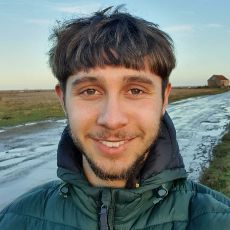Course structure
Year 1: broadening experience
The first year of the Programme gives you the opportunity to gain training in different techniques and laboratory environments, allowing you to develop your interests and make a more informed choice of PhD project.
1. Laboratory rotations: You will complete three 12-week laboratory rotations, chosen from the list of supervisors. We will discuss possible choices with you when an offer is made. The aims of these rotations are: 1) to gain some experience of working with particular supervisors and in different environments; 2) to learn essential techniques and conduct independent research towards a potential PhD and publications; 3) to broaden your experience of different approaches in neuroscience. Each rotation is followed by a written report and oral presentation.
2. Taught components: Students typically choose two taught modules in different specialized topics to study during Year 1, to complement your interests and training needs. Taught classes typically total 2-4 hours per week and run alongside the lab rotation work. PhD students are not usually required to complete taught module assessments for formal credit.
3. Researcher Development: Sussex Neuroscience is fully committed to professional development of its researchers at every level. Students on the Programme attend the weekly Sussex Neuroscience Seminar Series, and will take responsibility for hosting a speaker; you will also be included in lab meetings and journal clubs associated with your rotations. All postgraduate students attend Researcher Development workshops to receive training in different key skills such as academic writing papers and delivering presentations; these are run by the Doctoral School in line with the national Vitae Researcher Development Framework.
Years 2-4: the PhD
In June of the first year, you will choose the primary supervisor for your PhD research. Final PhD projects will be centred in one of our four participant Schools (Life Sciences, Psychology, Engineering & Informatics, BSMS) but you will also remain part of the Sussex Neuroscience PhD Programme cohort throughout your time here. During the PhD, you will be encouraged to attend advanced training courses and conferences at other institutions worldwide, as well as continued Researcher Development training and research group activities at Sussex.

SN PhD Programme
Supervision
Throughout the four years, your progress will be supported by a dedicated Programme Committee, a group of Sussex Neuroscience faculty responsible for organizing the Programme. During Year 1 you will be integrated into Sussex Neuroscience by participation in regular academic and social events, and through your interactions with the different rotation labs. In Years 2-4 you will also become a postgraduate member of your supervisor's School, benefitting from annual progress reviews and further activities. Career advice will be given in the last year to prepare you for your post-doctoral period.
The Programme Management Committee
The committee comprises Ruth Staras (Life Sciences), Miguel Maravall (Life Sciences), Louise Serpell (Life Sciences), Chris Bird (Psychology), Luc Berthouze (Informatics) and Alessandro Colasanti (BSMS).